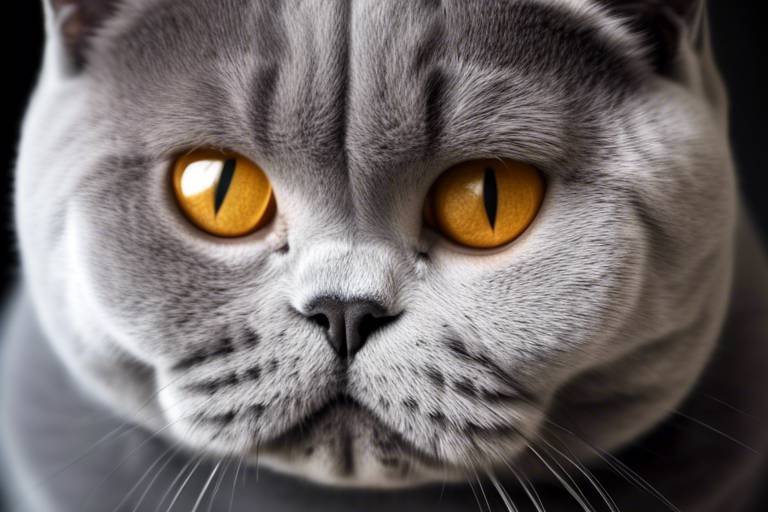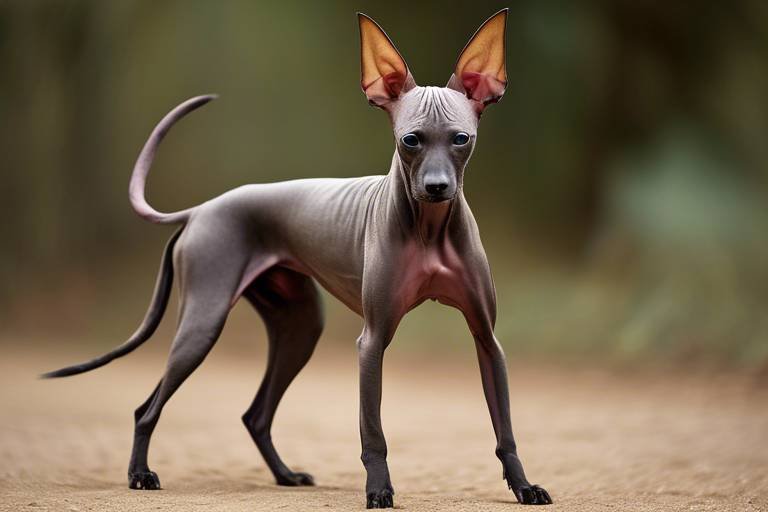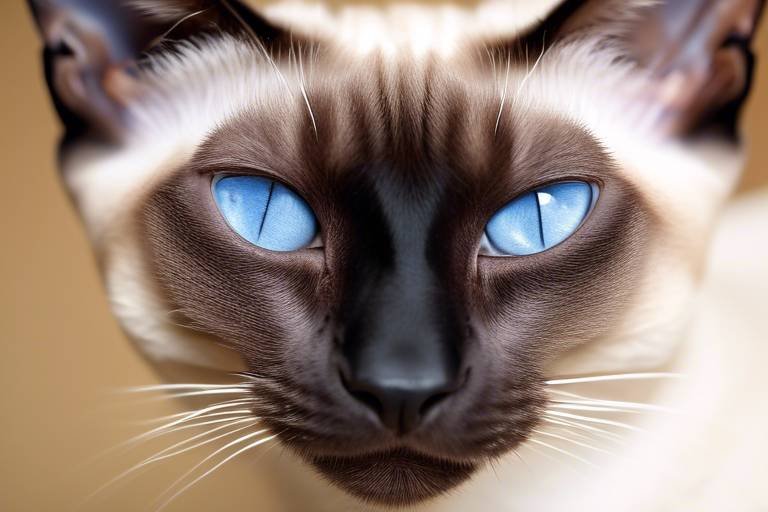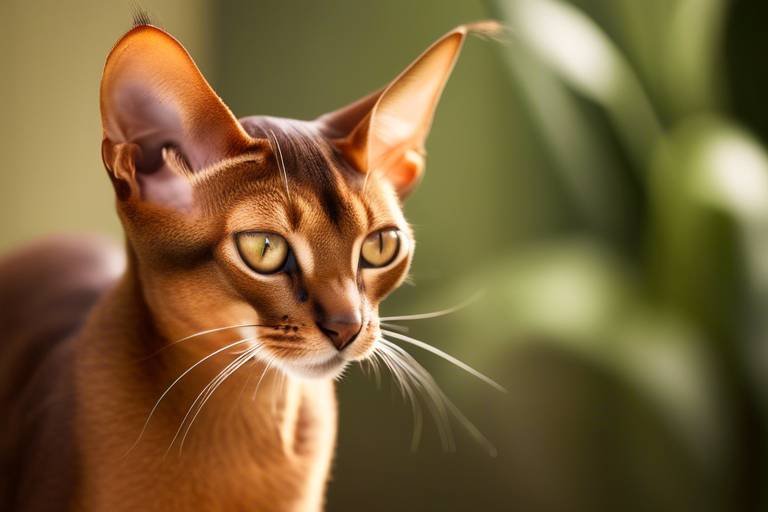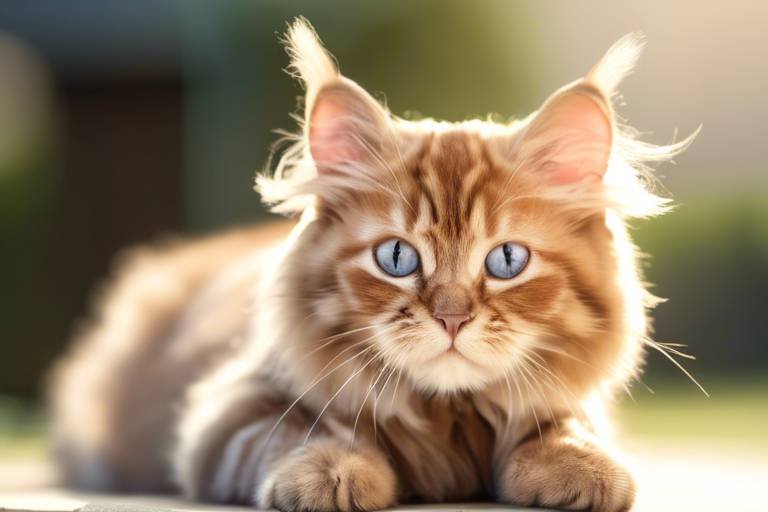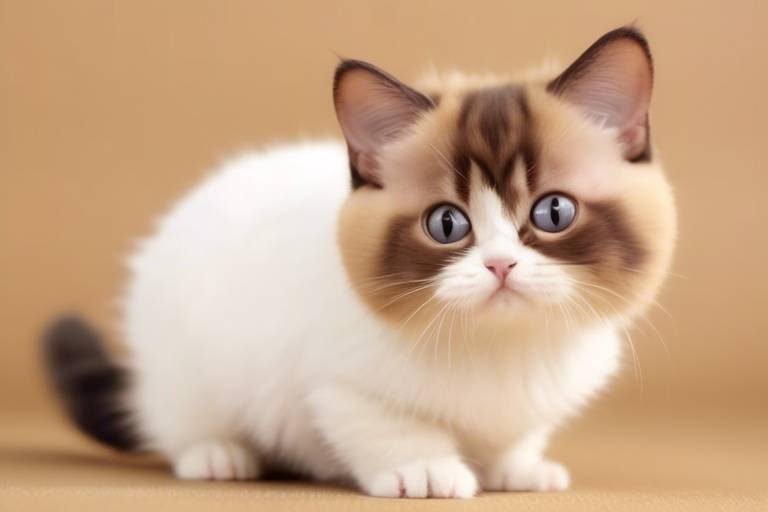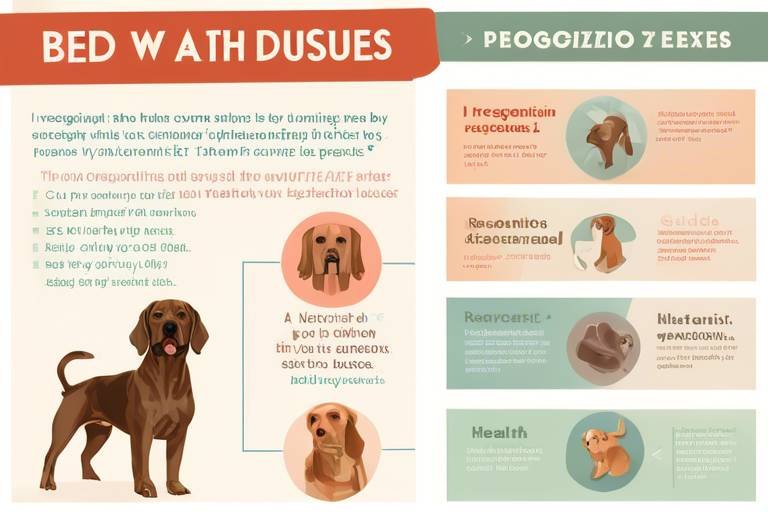The Unique Traits of the British Shorthair
The British Shorthair is more than just a cat; it's a charming companion that has captured the hearts of many pet lovers around the globe. With their robust build and endearing features, these cats have a way of making anyone feel at home. If you've ever seen a British Shorthair, you know exactly what I mean. Their round faces, large eyes, and plush coats give them an almost teddy bear-like appearance that invites you to snuggle up with them. But it’s not just their looks that make them stand out; it’s their personality and adaptability that truly set them apart.
Imagine a cat that perfectly balances playfulness with independence. The British Shorthair embodies this ideal, making them an excellent choice for families, singles, and everyone in between. Whether you live in a bustling city apartment or a quiet country house, these cats can adjust to your lifestyle with ease. Their calm demeanor means they can thrive in busy households, while their independent nature allows them to enjoy their own space when needed. It’s like having a best friend who knows when to have fun and when to chill out.
Moreover, the British Shorthair is not just a pretty face; they are intelligent and trainable too. This breed is known for its ability to learn commands and tricks, making them engaging companions. Have you ever wanted a cat that can fetch a toy or respond to its name? With a British Shorthair, that dream can become a reality. Their inquisitive nature means they enjoy mental stimulation, so don’t be surprised if they follow you around, curious about what you’re up to!
As we dive deeper into the distinctive traits of the British Shorthair, we'll explore their physical characteristics, temperament, health considerations, and so much more. Whether you’re a seasoned cat owner or thinking about adopting your first pet, understanding what makes this breed unique will help you appreciate them even more. So, let’s embark on this journey to discover the wonderful world of the British Shorthair!
- What is the average lifespan of a British Shorthair? The average lifespan of a British Shorthair is typically between 12 to 20 years, depending on their health and care.
- Do British Shorthairs require a lot of grooming? Their dense coats do require regular grooming, but they are relatively low-maintenance compared to long-haired breeds.
- Are British Shorthairs good with children and other pets? Yes! They are known for their friendly and tolerant nature, making them great companions for children and other pets.
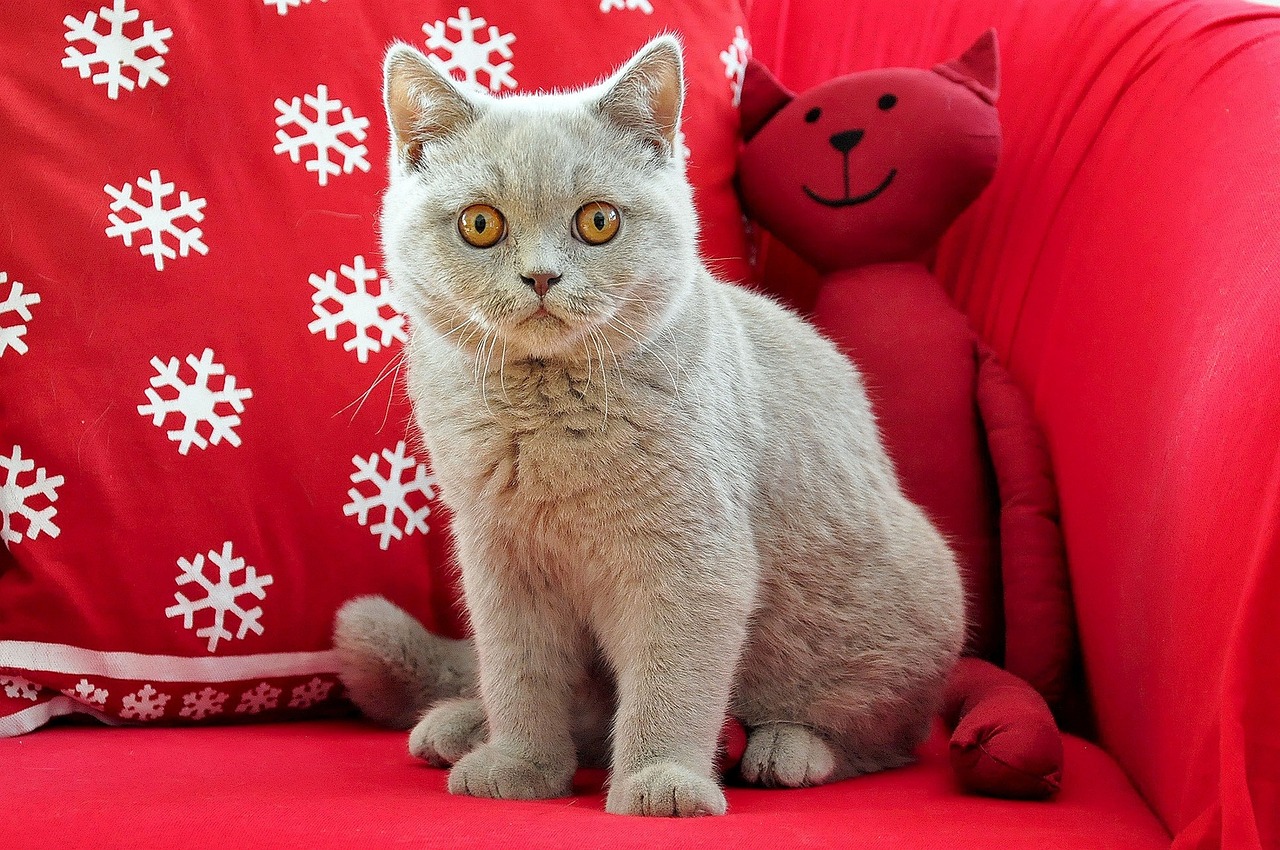
Physical Characteristics
The British Shorthair is a breed that immediately captures attention with its distinctive appearance. Picture a cat that seems to embody the essence of a plush toy, with its stocky build and robust frame. These cats are not just average felines; they are solidly built, with a muscular body that gives them a powerful presence. Their broad chest and thick legs contribute to an overall impression of strength and stability. When you see a British Shorthair, you’re looking at a cat that is built to last, much like a well-crafted piece of furniture.
One of the most striking features of the British Shorthair is its round face, which is often described as “teddy bear-like.” This roundness extends to their cheeks, giving them a sweet and friendly expression that melts hearts. Their large, copper-colored eyes are another defining trait, sparkling with intelligence and curiosity. These eyes, set wide apart, create an engaging gaze that can make anyone feel like they are being understood. It’s as if they possess a wisdom beyond their years, inviting you to share a moment in their world.
Now, let’s talk about their dense coat. The British Shorthair’s fur is not just for show; it serves a purpose. This breed has a thick, plush coat that feels luxurious to the touch. It comes in a variety of colors and patterns, from the classic blue to more exotic shades like cream and chocolate. The texture of their fur can be likened to a soft blanket, providing warmth and comfort. Interestingly, this dense coat also requires regular grooming to keep it in tip-top shape. A quick brush here and there not only helps reduce shedding but also strengthens the bond between you and your feline friend.
In terms of size, British Shorthairs are generally medium to large cats, with males typically weighing between 9 to 17 pounds and females weighing slightly less. Their size can be intimidating at first, but once you get to know them, you’ll find that they are gentle giants. Their sturdy stature, coupled with their charming looks, makes them a favorite among cat enthusiasts. It’s hard not to admire their well-rounded appearance, which combines strength and elegance seamlessly.
To summarize, the physical characteristics of the British Shorthair contribute significantly to its appeal. Here’s a quick overview:
| Characteristic | Description |
|---|---|
| Build | Stocky and muscular with a broad chest |
| Face | Round with chubby cheeks |
| Eyes | Large and copper-colored |
| Coat | Dense and plush, available in various colors |
| Size | Medium to large (9-17 pounds) |
These traits make the British Shorthair not just a pet but a delightful companion that adds a touch of charm and character to any home. Whether they are lounging in a sunbeam or playfully chasing after a feather toy, their unique physical characteristics are a constant reminder of why they are so beloved by many.
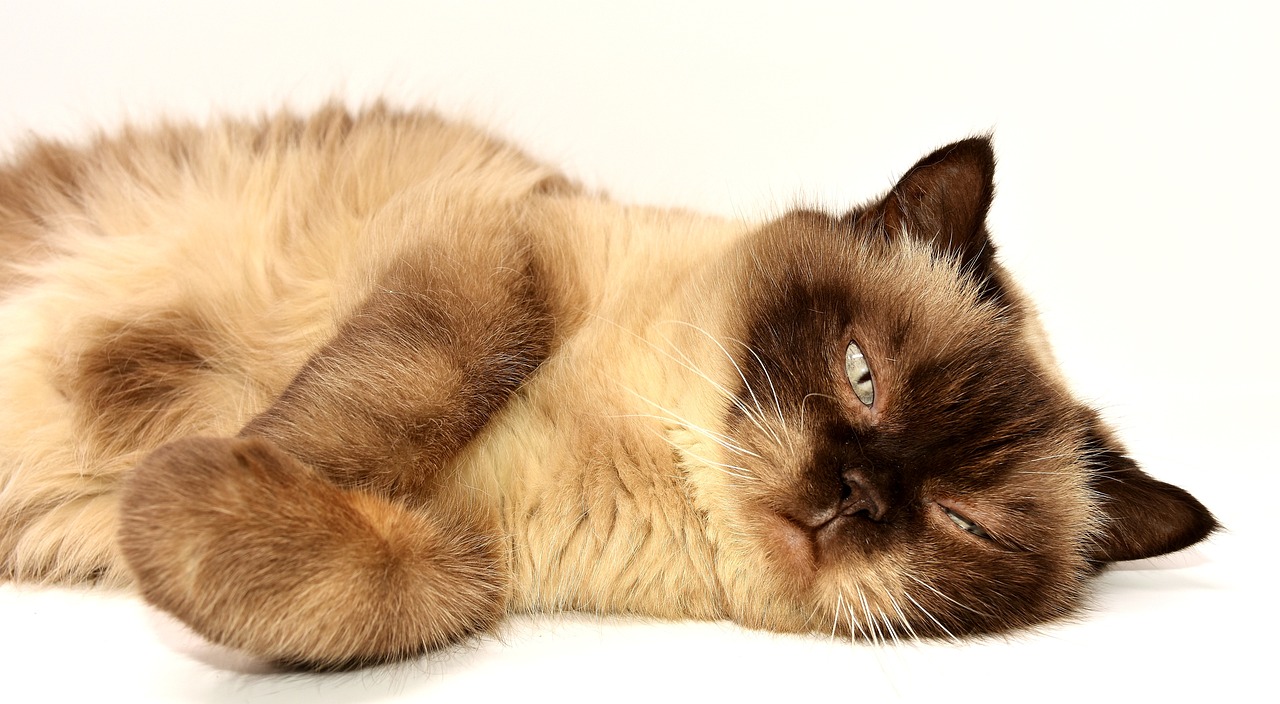
Temperament and Personality
The British Shorthair is not just a pretty face; it boasts a remarkable temperament that makes it one of the most sought-after cat breeds. Known for their calm and friendly nature, these cats are the epitome of what it means to be a loving companion. Imagine coming home after a long day, and there they are, perched comfortably on the couch, ready to greet you with a gentle purr. Their laid-back demeanor allows them to fit seamlessly into various family dynamics, whether you’re a bustling household or a quiet single living space.
What sets the British Shorthair apart is their social behavior. Unlike some breeds that can be a bit aloof, these cats thrive on interaction. They enjoy being around people and often follow their owners from room to room, just to be part of the action. However, they also have a strong sense of independence. It’s almost like they have a built-in timer for when they want to socialize versus when they want their personal space. This unique blend of traits makes them ideal pets for families with children, as well as for individuals who appreciate a companion that respects their alone time.
When it comes to affection, British Shorthairs are pros. They have a way of bonding with their owners that is both heartwarming and genuine. You might find them curling up in your lap or nudging your hand for a pet. Their affectionate nature is not just about physical closeness; they also express love through their gentle purring and soft headbutts. It’s as if they are saying, “I’m here for you.” This emotional connection can be incredibly rewarding, making them more than just a pet; they become a part of your family.
Now, let’s talk about their playful side! British Shorthairs love to engage in playtime, but they do it on their own terms. You might find them chasing after a feather toy or batting around a ball of yarn, but once they’ve had their fill, they will happily retreat to their favorite sunny spot for a nap. This balance of playfulness and independence is what makes them so special. They know when to have fun and when to chill out, making them easygoing companions that don’t demand constant attention.
One of the standout qualities of the British Shorthair is their adaptability. They can thrive in various living environments, whether it’s a bustling family home or a quiet apartment. Their calm demeanor allows them to adjust to different lifestyles without much fuss. If you have a busy household with kids running around, they’ll fit right in, often becoming a beloved playmate. Conversely, if you live alone and enjoy a quieter life, they are perfectly content to curl up beside you while you read a book. This adaptability is a significant reason why they are such a popular choice among cat lovers.
Let’s not forget about their intelligence! British Shorthairs are not just adorable; they are also quite smart. They can learn commands and tricks, making them surprisingly trainable. While they may not be as eager to please as some other breeds, with a little patience and positive reinforcement, you can teach them various behaviors. This intelligence adds another layer to their personality, allowing for a deeper connection between you and your feline friend.
- Are British Shorthairs good with children? Yes, they are generally very good with children and can be very affectionate and playful.
- Do they require a lot of grooming? Their dense coat does require regular grooming, but they are relatively low-maintenance compared to other breeds.
- How long do British Shorthairs typically live? With proper care, they can live between 12 to 20 years.
- Are they prone to any health issues? Like all breeds, they can have specific health concerns, so regular vet check-ups are essential.
Affectionate Companions
The British Shorthair is not just a cat; it’s a furry bundle of love that has a knack for making you feel special. These charming felines are known for their affectionate nature, often forming deep bonds with their human companions. Imagine coming home after a long day, and there they are, waiting at the door with their round, expressive eyes, ready to greet you with a gentle nuzzle. This breed thrives on companionship and has a unique way of showing their love that can melt even the hardest of hearts.
One of the most endearing traits of British Shorthairs is their ability to sense your emotions. They seem to have an innate understanding of when you’re feeling down or stressed. It’s almost as if they can read your mind! During those tough days, you might find your British Shorthair curling up next to you, purring softly, as if to say, “I’m here for you.” This emotional intelligence makes them not just pets, but true companions who offer comfort in times of need.
Furthermore, their affectionate behavior is not limited to just their owners. British Shorthairs are generally friendly with children and other pets, making them an excellent addition to any family. They have a calm demeanor that allows them to adapt to various social situations. Whether it’s playing with the kids or lounging with another pet, they manage to spread warmth and affection all around. Their social nature often leads them to seek out interactions, whether it’s a gentle head bump or a soft paw placed on your lap, inviting you to share a moment together.
Interestingly, while they love to be around their humans, they also respect personal space. This balance is what makes them so appealing. They won’t smother you with attention but will be there when you need them the most. Their affectionate moments often come at just the right time, whether it’s a quiet evening on the couch or a sunny afternoon by the window. This unique blend of affection and independence is what truly sets the British Shorthair apart as an ideal companion.
In summary, the British Shorthair’s affectionate nature is a beautiful combination of warmth, empathy, and respect for boundaries. They are the kind of pets that enhance your life, making every moment spent together feel special. If you’re considering adding a British Shorthair to your family, be prepared for a loving companion who will fill your home with joy and warmth.
Playful Yet Independent
When you think about the British Shorthair, you might picture a fluffy bundle of joy, always ready to pounce into action. And you’d be right! These cats are playful little adventurers at heart. However, there’s a twist to their personality that makes them stand out: their independence. It's like they have a switch that toggles between playful kitten and wise old sage, and it’s absolutely fascinating to witness.
Imagine a scenario where your British Shorthair is chasing a feather toy, darting around the room with the agility of a tiny lion. Their playful nature is infectious; you can’t help but join in on the fun! They love interactive play, whether it’s a game of hide-and-seek or a good old-fashioned laser pointer chase. But here’s the kicker: once the play session is over, they might just retreat to their favorite sunny spot, curling up for a well-deserved nap. This balance of energy and relaxation is what makes them so unique.
What’s even more intriguing is how their independent streak allows them to thrive in various living environments. They don’t require constant attention, which makes them perfect for busy families or individuals who might not always be home. You can leave them to their own devices, and they’ll be perfectly content, perhaps watching the world go by from a window perch or entertaining themselves with a toy. This independence is not about aloofness; rather, it’s about being comfortable in their own skin. They can enjoy solitude without feeling lonely, which is a rare trait among many cat breeds.
To give you a clearer picture of their playful yet independent nature, let’s break it down:
| Trait | Description |
|---|---|
| Playfulness | British Shorthairs love to engage in play, making them fun companions. |
| Independence | They can entertain themselves and enjoy their own company. |
| Energy Balance | They switch between active play and peaceful lounging effortlessly. |
In essence, British Shorthairs encapsulate the best of both worlds. They’re the life of the party when it’s time to play, yet they also appreciate their space and downtime. This makes them incredibly adaptable companions, fitting seamlessly into various lifestyles. So, whether you’re a busy professional or a stay-at-home pet parent, a British Shorthair will likely bring joy and laughter into your life while respecting your need for personal space.
- Do British Shorthairs require a lot of playtime?
While they enjoy play, they also value their independence and can entertain themselves. - Are they good with children and other pets?
Yes, their friendly nature makes them great companions for families and other pets. - How much exercise do they need?
Regular play sessions are beneficial, but they don’t require excessive exercise like some other breeds.
Adaptability
The British Shorthair is truly a breed that embodies . Whether you live in a bustling city apartment or a quiet countryside home, these cats seamlessly adjust to their surroundings. Imagine a cat that can comfortably lounge on a windowsill, watching the world go by, yet also be energetic enough to engage in play when the mood strikes. This remarkable ability to adapt is one of the many reasons why they are such cherished companions.
One of the standout traits of the British Shorthair is their calm demeanor. They are not easily stressed by changes in their environment. For instance, if you move to a new home or have guests over, these cats typically take it all in stride. Their laid-back nature means they’re less likely to hide or exhibit anxiety, making them perfect for families who may have a lot of activity going on. They thrive in various settings, whether it’s a lively household with children or a serene space for a single person.
Moreover, British Shorthairs are known for their social flexibility. They can easily coexist with other pets, including dogs, as long as proper introductions are made. This adaptability extends to their interactions with humans as well. They are friendly and sociable, often forming strong bonds with their owners. Their ability to fit into different social dynamics makes them an excellent choice for families with diverse lifestyles.
In terms of living arrangements, British Shorthairs are not overly demanding. They can be perfectly content in smaller spaces, provided they have access to engaging toys and scratching posts. A cozy corner with a soft bed is all they need to feel at home. However, they also enjoy having space to roam and explore, so a house with a yard can be an added bonus. Their adaptability is akin to a chameleon, effortlessly blending into whatever environment they find themselves in.
In conclusion, the British Shorthair’s adaptability is a significant factor in their popularity. They are not just a pretty face; they possess a unique combination of traits that allows them to thrive in various situations. Whether you’re a busy professional, a family with kids, or someone who enjoys a quieter lifestyle, this breed can fit right in. Their ability to adjust to different living environments and social settings makes them a truly versatile companion.
- How do British Shorthairs adjust to new environments?
British Shorthairs are generally calm and adaptable, making them less prone to stress when moving to new homes or encountering new situations. - Can British Shorthairs get along with other pets?
Yes, they are known for their social flexibility and can coexist peacefully with other pets, including dogs, if properly introduced. - Do they require a lot of space?
No, British Shorthairs can thrive in smaller living spaces, but they do enjoy having room to explore and play.
Intelligence and Trainability
The British Shorthair is not just a pretty face; this breed is also known for its sharp intellect. Their intelligence is often reflected in their ability to learn commands and tricks, making them quite trainable. Unlike some breeds that may have a stubborn streak, British Shorthairs tend to be more receptive to training, which is a delightful trait for any cat owner. Imagine teaching your furry friend to sit or even fetch a toy! It’s not just a dream; with a little patience, it can be a reality.
One of the reasons behind their trainability is their curiosity. British Shorthairs are naturally inquisitive creatures, always eager to explore their surroundings. This curiosity can be harnessed during training sessions, as they often enjoy engaging their minds. Incorporating play into training can make the process even more enjoyable. For instance, using a feather wand or a laser pointer can keep them motivated and excited about learning. After all, who doesn’t love a good game?
However, it’s essential to approach training with a gentle hand. Positive reinforcement works wonders with this breed. Treats, praise, and affection are your best tools. When they successfully perform a trick or follow a command, shower them with love and rewards. This not only reinforces the behavior but also strengthens the bond between you and your cat. It’s a win-win situation!
Moreover, British Shorthairs can also learn to adapt to various environments and situations. Their intelligence allows them to assess their surroundings and respond accordingly. For example, if you introduce a new pet into the household, a British Shorthair will often take the time to observe and understand the new dynamic before jumping in. This adaptability is a testament to their smart and observant nature.
In summary, the intelligence of the British Shorthair goes hand-in-hand with their trainability. With the right approach, you can teach them a variety of commands and tricks, turning your home into a playful training ground. Just remember to keep it fun and rewarding; after all, a happy cat is a trainable cat!
- Are British Shorthairs easy to train? Yes, they are quite trainable due to their intelligence and curiosity.
- What kind of training methods work best for British Shorthairs? Positive reinforcement, such as treats and praise, is the most effective method.
- Can British Shorthairs learn tricks? Absolutely! With patience and consistency, they can learn various commands and tricks.
- How do they adapt to new environments? Their intelligence allows them to observe and adapt to new situations effectively.
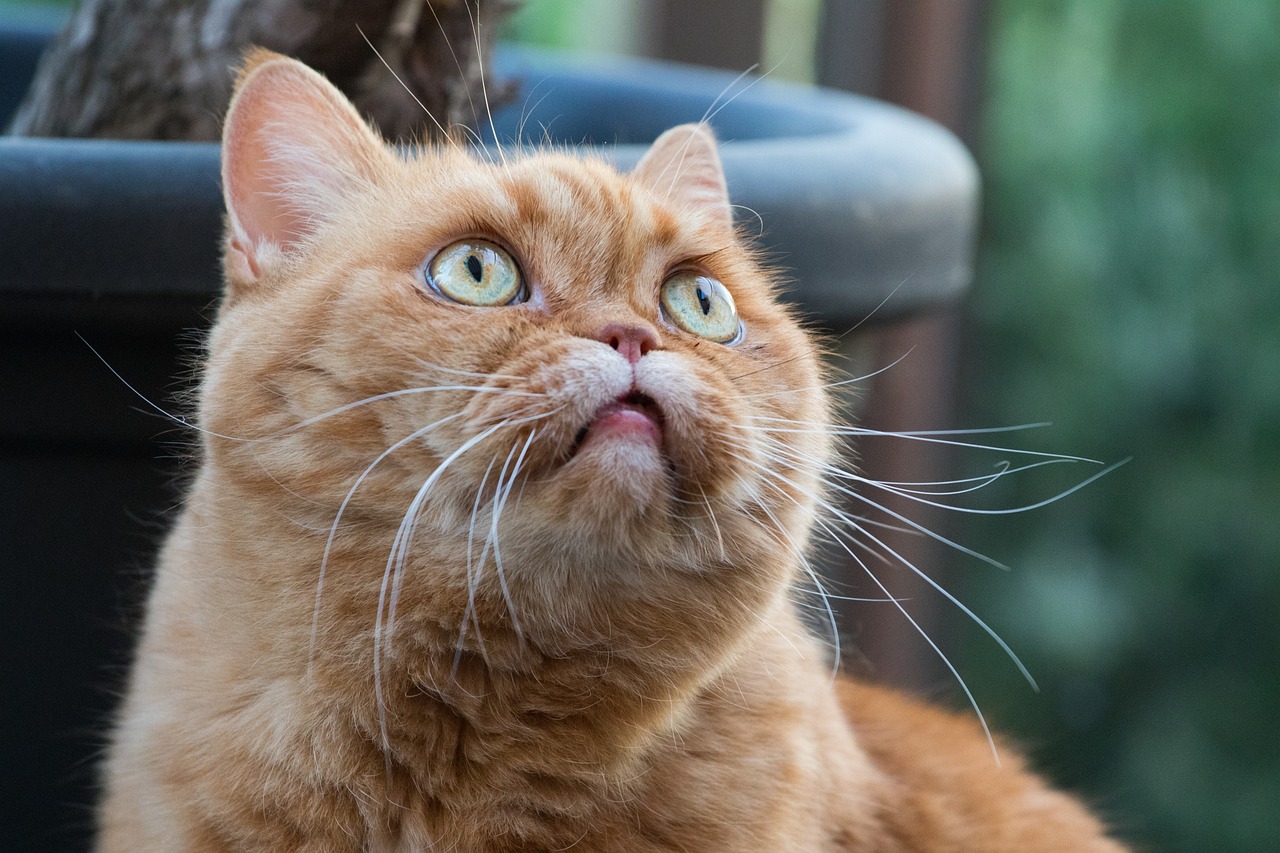
Health Considerations
The British Shorthair, like any beloved pet, deserves special attention when it comes to health. While they are generally known for their robust constitution, it's crucial to be aware of certain health considerations that can affect this charming breed. Regular veterinary check-ups play a vital role in ensuring your furry friend remains happy and healthy throughout their life. These check-ups allow for early detection of potential health issues, which can be pivotal in providing timely treatment and care. It's not just about treating illnesses; it's about preventing them in the first place. After all, an ounce of prevention is worth a pound of cure, right?
One of the common health concerns for British Shorthairs is their predisposition to certain genetic conditions. For instance, they can be prone to obesity due to their laid-back nature, which can lead to diabetes and other serious health problems. Keeping an eye on their weight and ensuring they have a balanced diet is essential. Speaking of diet, understanding their nutritional needs is key. A diet rich in protein and low in carbohydrates is ideal for maintaining their health. You might want to consult with your vet to create a tailored diet plan that suits your British Shorthair's specific needs.
Another important aspect to consider is dental health. British Shorthairs can be susceptible to dental issues, so incorporating dental care into their routine is a must. Regular brushing and dental treats can help keep their teeth clean and gums healthy. Just like we humans need to maintain our dental hygiene, our feline friends need the same level of care. Additionally, be on the lookout for signs of dental problems, such as bad breath or difficulty eating.
To summarize the key health considerations for British Shorthairs, here’s a quick table:
| Health Concern | Prevention/Tips |
|---|---|
| Obesity | Monitor weight; provide a balanced diet. |
| Dental Issues | Regular brushing; dental treats. |
| Genetic Conditions | Regular vet check-ups; genetic testing. |
Incorporating these health considerations into your routine will not only help your British Shorthair live a longer, healthier life but will also enhance the bond you share with them. Remember, a happy cat is a healthy cat! So, take the time to nurture their physical well-being and enjoy the many cuddles and playful moments that come with being a British Shorthair owner.
- What are the common health issues in British Shorthairs? British Shorthairs can face obesity, dental issues, and certain genetic conditions.
- How often should I take my British Shorthair to the vet? Regular check-ups, at least once a year, are recommended to monitor their health.
- What is the best diet for a British Shorthair? A high-protein, low-carbohydrate diet is ideal for maintaining their health.
- How can I prevent obesity in my British Shorthair? Monitor their weight, provide a balanced diet, and encourage regular playtime.
Dietary Needs
Understanding the of British Shorthairs is crucial for ensuring their health and longevity. These cats, with their robust build and dense coat, require a balanced diet that supports their unique physiology. It's not just about feeding them; it's about providing the right nutrients that cater to their specific needs. A well-rounded diet will help maintain their energy levels, support their immune system, and keep their coat looking as plush as ever.
British Shorthairs benefit from a diet rich in high-quality protein. This breed is known for its muscular build, and protein is essential for maintaining muscle mass. Look for cat foods that list real meat as the first ingredient, such as chicken, turkey, or fish. Additionally, incorporating some healthy fats into their diet is important. These fats not only provide energy but also contribute to a shiny, healthy coat. Omega-3 and Omega-6 fatty acids are particularly beneficial.
Moreover, British Shorthairs are prone to certain health issues, such as obesity. Therefore, portion control is essential. You might find it helpful to consult with your veterinarian to determine the appropriate calorie intake based on your cat's age, weight, and activity level. This way, you can avoid overfeeding and ensure your furry friend stays at a healthy weight.
When it comes to feeding schedules, consistency is key. Most British Shorthairs do well with two meals a day. This routine not only helps regulate their metabolism but also gives them something to look forward to. You can also consider incorporating some wet food into their diet. Wet food can provide hydration and is often more palatable, making it easier for picky eaters to enjoy their meals.
It's also wise to be cautious about treats. While it's tempting to spoil your British Shorthair with snacks, moderation is essential. Opt for healthy treats and avoid those that are high in calories or artificial ingredients. Remember, treats should only make up a small portion of their overall diet.
Lastly, always ensure that fresh water is available at all times. Hydration is just as important as nutrition. Cats can be notoriously finicky about drinking water, so consider providing a cat water fountain to encourage them to drink more.
In summary, a balanced diet for a British Shorthair should include:
- High-quality protein sources
- Healthy fats for coat health
- Controlled portions to prevent obesity
- Regular feeding schedules
- Fresh water available at all times
By paying attention to these dietary needs, you can help your British Shorthair thrive and enjoy a happy, healthy life.
Q: What should I feed my British Shorthair?
A: A high-quality diet rich in protein, healthy fats, and controlled portions is ideal for British Shorthairs. Look for cat foods with real meat as the primary ingredient.
Q: How often should I feed my British Shorthair?
A: Most British Shorthairs do well with two meals a day. Consistency in feeding times helps regulate their metabolism.
Q: Are there any specific health concerns I should be aware of?
A: British Shorthairs can be prone to obesity, so it's important to monitor their weight and avoid overfeeding. Regular veterinary check-ups can help catch any health issues early.
Q: Can I give my British Shorthair treats?
A: Yes, but moderation is key. Choose healthy treats and ensure they don’t make up more than 10% of your cat's daily caloric intake.
Regular Vet Check-ups
When it comes to keeping your British Shorthair healthy and happy, are essential. Just like we humans need our annual physicals, these furry companions benefit greatly from routine veterinary visits. But why is this so important? Well, British Shorthairs, while generally robust, can be prone to certain health issues that might not be immediately obvious. Regular check-ups allow for early detection of potential problems, ensuring your cat remains in tip-top shape.
During these visits, veterinarians perform a variety of assessments. They will typically conduct a thorough physical examination, checking your cat's weight, dental health, and overall condition. Additionally, they might recommend routine blood tests or vaccinations to keep your cat protected from common diseases. It's a bit like a wellness check for your feline friend, helping to catch any health concerns before they escalate into something more serious.
Moreover, these appointments are a golden opportunity for you to discuss any behavioral changes you've noticed. Is your British Shorthair suddenly less active? Have they been eating differently? These insights can be crucial for the vet, who can then tailor their advice and treatment accordingly. Remember, your cat can’t vocalize their discomfort like we can, so being observant and proactive is key.
To help you keep track of your British Shorthair's health needs, consider creating a simple schedule for vet visits. Here’s a quick overview:
| Age of Cat | Recommended Check-up Frequency |
|---|---|
| Kitten (0-1 year) | Every 3-4 weeks until 16 weeks, then annually |
| Adult (1-7 years) | Every 1-2 years |
| Senior (7+ years) | Every 6 months |
Additionally, it’s wise to keep a record of vaccinations and any treatments your cat receives. This not only helps you stay organized but also provides valuable information for your veterinarian during each visit. A well-maintained health record can make a significant difference in how effectively your vet can manage your cat's health.
In conclusion, regular vet check-ups are a cornerstone of your British Shorthair's health care regimen. By staying on top of these appointments, you're not just fulfilling a responsibility; you're also investing in a longer, healthier life for your beloved pet. So, mark those calendars and make those calls—your furry friend will thank you!
- How often should I take my British Shorthair to the vet? It's recommended to take them for check-ups at least once a year, or more frequently if they are senior cats.
- What should I expect during a vet visit? Expect a full physical examination, discussions about diet and behavior, and possibly vaccinations or blood tests.
- Are there specific health issues to watch for in British Shorthairs? Yes, they can be prone to obesity, heart disease, and certain genetic conditions, so regular monitoring is crucial.
Frequently Asked Questions
- What are the key physical characteristics of a British Shorthair?
The British Shorthair is easily recognizable with its stocky build, round face, and dense, plush coat. Their large, round eyes can come in various colors, adding to their charming appearance. Overall, these cats exude a robust and sturdy presence, making them truly unique in the feline world.
- How would you describe the temperament of a British Shorthair?
British Shorthairs are known for their calm and friendly demeanor. They are affectionate companions who enjoy spending time with their families but also value their independence. This balance makes them perfect for various living situations, whether in a bustling household or a quieter environment.
- Are British Shorthairs good with children and other pets?
Absolutely! British Shorthairs are typically very social and adapt well to different family dynamics. They are known for being gentle and patient, making them great companions for children. They can also coexist harmoniously with other pets, showcasing their friendly nature.
- How intelligent are British Shorthairs?
British Shorthairs are quite intelligent and can learn commands and tricks with proper training. Their curiosity and playful nature make them eager to engage in interactive play, which can also be a great opportunity for learning. Their intelligence means they thrive in environments where they can explore and challenge themselves.
- What are the common health issues associated with British Shorthairs?
Like all breeds, British Shorthairs can be prone to certain health issues, such as obesity, heart disease, and hip dysplasia. Regular veterinary check-ups are essential to monitor their health and catch any potential issues early on. Keeping an eye on their diet and exercise can also help maintain their overall well-being.
- What dietary needs should I consider for my British Shorthair?
British Shorthairs require a balanced diet that supports their unique health needs. High-quality cat food that is rich in protein and low in fillers is ideal. It's also important to monitor their weight, as they can be prone to obesity. Consulting with your vet about the best nutrition plan for your cat is always a good idea.
- How often should I take my British Shorthair to the vet?
Regular vet check-ups are crucial for British Shorthairs. Ideally, you should schedule a visit at least once a year for a routine health assessment. If your cat has any specific health concerns or changes in behavior, don't hesitate to consult your veterinarian sooner.

